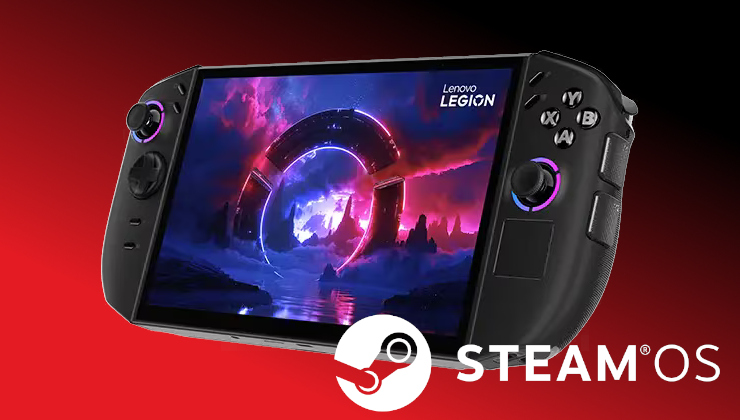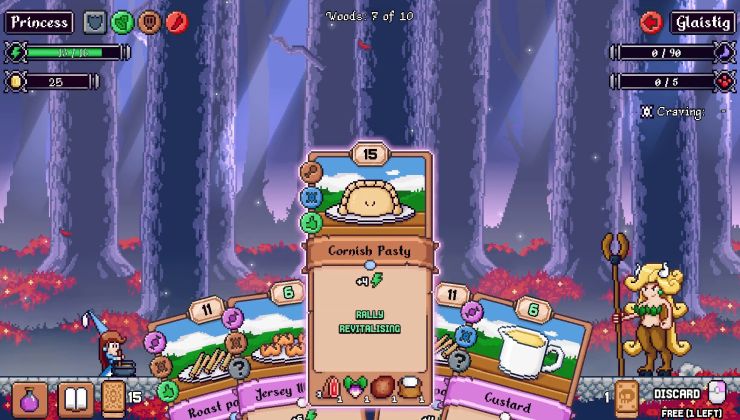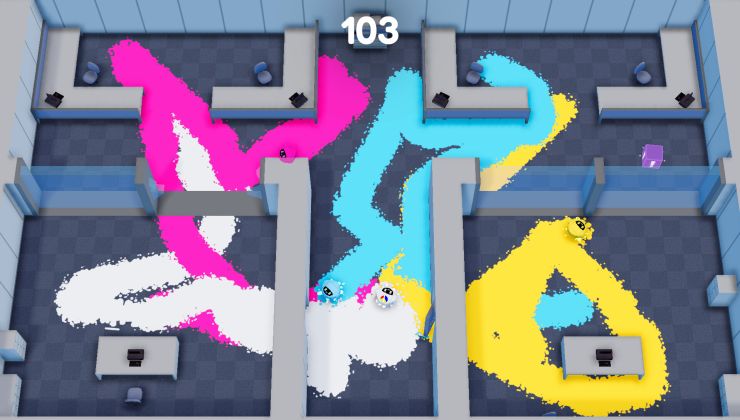Quite a big surprise, but truly a welcome one, and a great one for game developers. Microsoft are moving more towards open standards by adopting SPIR-V for DirectX.
Joining up with the Khronos SPIR and Vulkan working groups, once Shader Model 7 is released, it means DirectX 12 will accept shaders compiled to SPIR-V. This change could make it a whole lot simpler for developers to put their games on Linux, and make the job of Proton to get Windows games working on Linux / Steam Deck a bit easier too.
Some key parts of their announcement copied below:
In the 8 years since Shader Model 6.0 was first introduced, Direct3D and HLSL have grown considerably in both features and adoption. Releasing DXC on GitHub and the tremendous contributions from open-source collaborators and partners played a significant role in expanding HLSL’s user base to include Vulkan and Metal developers. As a result of this expansion, the team is focusing on developing HLSL support in Clang to enable us to keep up with industry demand for openness and new features. As we look end to end at the best way to support the full spectrum of our users, we are working hard to support HLSL for both DXIL and SPIR-V with Clang and LLVM.
To better enable HLSL’s Vulkan support, the HLSL team is now participating in The Khronos Group’s SPIR and Vulkan working groups. This direct participation will allow smoother collaboration and more rapid adoption of Vulkan features. We believe this will ensure that HLSL is the best language for writing shaders for every GPU runtime environment.
[…]
As we look to the future, maintaining a proprietary IR format (even one based on an open-source project) is counter to our commitments to open technologies, so Shader Model 7.0 will adopt SPIR-V as its interchange format. Over the next few years, we will be working to define a SPIR-V environment for Direct3D, and a set of SPIR-V extensions to support all of Direct3D’s current and future shader programming features through SPIR-V. This will allow developers to take better advantage of existing tools and unify the ecosystem around investing in one IR.
In addition to providing a compiler for HLSL to Direct3D’s SPIR-V, we will also be building and providing translation tools to translate SPIR-V to DXIL and DXIL to SPIR-V. Those tools will allow and driver developers to gradually transition and gracefully adapt tooling and drivers.
See more in the Microsoft announcement.
1. Corporate cost-cutting
2. Preparing for a future antitrust (look, we're so open!)
3. Actually caring about open standards
UPD: ah, so they will provide tools for conversion, but still not clear whether they will be developed by MS or maybe they could consider dxil-spirv
Last edited by satoridepon on 20 Sep 2024 at 12:26 pm UTC
Microsoft Embracing open standards nEver fails to sEnd a chill down my spine.
I’m not sure Microsoft can Embrace, Extend, and Extinguish a shader system
Which one do you think it is?
1. Corporate cost-cutting
2. Preparing for a future antitrust (look, we're so open!)
3. Actually caring about open standards
I would go with 1+2. I don't really trust Microsoft with their love for open standards. Otherwise Windows would be open.
Microsoft Embracing open standards nEver fails to sEnd a chill down my spine.
I’m not sure Microsoft can Embrace, Extend, and Extinguish a shader system
Why couldn't they? Add an extension no one else can implement (or want to, because it's believed to be a bad idea), devs start using it because needed for xbox/windows, shader is now no longer portable to other systems.
Which one do you think it is?
1. Corporate cost-cutting
2. Preparing for a future antitrust (look, we're so open!)
3. Actually caring about open standards
It's actually option 4. HLSL is not popular anymore, it's a desparate act to try and save it.
Which one do you think it is?It's always 1.
1. Corporate cost-cutting
2. Preparing for a future antitrust (look, we're so open!)
3. Actually caring about open standards
Sometimes 2 aswell.
we will also be building and providing translation tools to translate SPIR-V to DXIL and DXIL to SPIR-V.I lack any real knowledge to graphics programming, isn't their real goal with all that to make it easier for developers to change to Microsoft technologies like DirectX?
It might be an interesting path if developers (or their companies) want to sell their software, eventually they might even drop support for other platforms entirely to make it easier to maintain the codebase, and if most of the programmers available in the market only know HLSL/DirectX or are more skilled on them.
But also, adopting standards is generally good for companies. They can contribute a fraction of the work designing stuff and still get the full benefit. It makes their products way easier to use, reduces the entry barrier. It expands every adopter's market, allowing them to play to their strengths without needing to be best in everything. If you aren't 100% sure you will be dominant on your own, this is a safer bet.
Now, Microsoft is humongous and anti-competitive so they often go to great lengths to break compatibility because the status quo is their dominance. But I'd hazard a guess that specific shader models aren't a particularly important part of that strategy. DirectX/Direct3D as a whole, sure, but not this.
Why couldn't they? Add an extension no one else can implement (or want to, because it's believed to be a bad idea), devs start using it because needed for xbox/windows, shader is now no longer portable to other systems
For Linux gaming it doesn't make much of a difference whether to implement/emulate some proprietary Microsoft shader feature in vkd3d-proton/dxil-spirv or implementing a SPIR-V extension. Except the latter should be actually easier, since the spec is open, you don't have to reverse engineer anything, you can utilize existing infrastructure in Mesa and probably more people will benefit from it in the end.
Ultimately this is a positive change. Microsoft contributes to SPIR-V, everyone benefits from it. Windows apps (not only games) will be a little bit more stable and faster on Linux, less burden on Proton developers
Last edited by satoridepon on 20 Sep 2024 at 3:01 pm UTC
Microsoft Embracing open standards nEver fails to sEnd a chill down my spine.
"Direct3D’s SPIR-V" does sound like "Microsoft Java."
On the other hand, feature-completeness with Direct3D has been an explicit goal of Khronos for Vulkan, and I can't think of a way that that would be made harder by Microsoft being involved in the process.
Which one do you think it is?
1. Corporate cost-cutting
2. Preparing for a future antitrust (look, we're so open!)
3. Actually caring about open standards
Laying the groundwork for a future version of Windows that will be based on Linux?
Which one do you think it is?
1. Corporate cost-cutting
2. Preparing for a future antitrust (look, we're so open!)
3. Actually caring about open standards
4. they figured out that wine/proton were already perfect at this, so they had nothing to lose in doing that, yet they would earn the benefit of being seing as the good guys, pure pr movement.
"We believe this will ensure that HLSL is the best language for writing shaders for every GPU runtime environment."
they want to ensure that their standard is still the standard...
wich is good for everyone who chose to learn it, and bad for those who chose the vulkan route.
shadders current state is not being portable...Microsoft Embracing open standards nEver fails to sEnd a chill down my spine.
I’m not sure Microsoft can Embrace, Extend, and Extinguish a shader system
Why couldn't they? Add an extension no one else can implement (or want to, because it's believed to be a bad idea), devs start using it because needed for xbox/windows, shader is now no longer portable to other systems.
Which one do you think it is?All the 3 + 1:
1. Corporate cost-cutting
2. Preparing for a future antitrust (look, we're so open!)
3. Actually caring about open standards
To cut costs while making sure their position is less attackable by untitrust actions, the corporations assigns a genuinely caring employ to an open-source project, who will achieve alone the result of a full team.











 How to setup OpenMW for modern Morrowind on Linux / SteamOS and Steam Deck
How to setup OpenMW for modern Morrowind on Linux / SteamOS and Steam Deck How to install Hollow Knight: Silksong mods on Linux, SteamOS and Steam Deck
How to install Hollow Knight: Silksong mods on Linux, SteamOS and Steam Deck